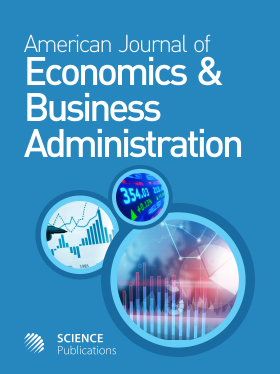Should Individual Investors Use Technical Trading Rules to Attempt to Beat the Market?
- 1 Quinnipiac University, United States
- 2 Sacred Heart University, United States
Abstract
Problem statement: Despite widespread academic acceptance of the Efficient Markets Hypothesis, some stock traders still use technical trading rules in an attempt to beat the market. Approach: This study looked at four trading rules, namely, the arithmetic moving average, the relative strength index, a stochastic oscillator and its moving average. These trading rules compare the relationship of current prices to past price patterns to generate a signal when to buy and sell stocks. The trading rules were tested over the years 2000-2009, a period of time that exhibited bull and bear markets, to determine if traders could actively trade a stock and beat a passive investment strategy. Results: We tested the four trading rules against the 576 stocks that comprise the S&P 100, the NASDAQ 100 and the S&P Midcap 400. The results proved discouraging to that strategy, in that no one trading rule consistently beat the market. Conclusion/Recommendations: Since technical trading rules cannot be used to consistently beat a long-term buy and hold strategy, we recommend that investors first use fundamental analysis to select stocks and then apply a technical trading rule to enhance potential trading gains.
DOI: https://doi.org/10.3844/ajebasp.2010.201.209

- 7,632 Views
- 4,127 Downloads
- 1 Citations
Download
Keywords
- Efficient market hypothesis
- moving average
- relative strength index
- stochastic oscillators
